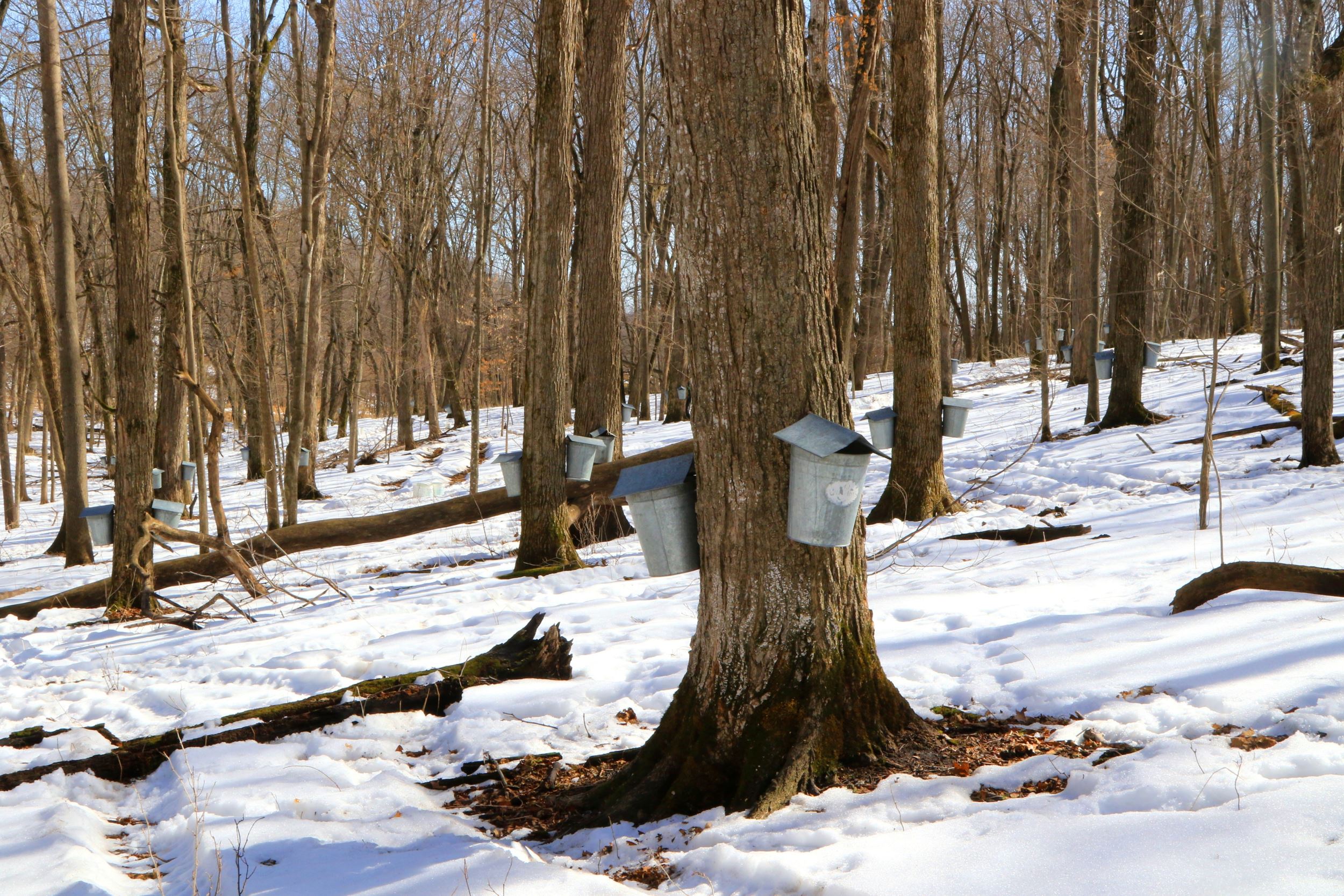Maple Tapping
By Josh Harris on February 15, 2023 in Blog
The recent warmer weather has pushed people outdoors — and it's the perfect time to consider adding maple tapping to a shortlist of seasonal doings. First-time tappers will surely enjoy participating in a practice that has resonated with various cultures through time. North American natives and early settlers relished collecting maple tree sap and boiling it until it thickened into a syrupy sweet.
Optimal tapping conditions occur late February into March as sap flow reaches its peak when day temperatures in the low 40s and night temperatures below 20 degrees. Start the process as early as you can, as it will take many gallons (as much as 86!) of sap to produce one gallon of boiled-down syrup.
Although all trees can produce sap, the yield varies in appearance, texture and flavor depending on  the species. Identifying and selecting mature maples at least ten inches in diameter is key. Iowa has a selection of native maples including boxelder, silver maple and hard maples like sugar and black maple. Silver maples produce thinner sap with low sugar content and overall sap yield. For a sweeter taste, sugar maples, found mostly on Iowa’s eastern edge in moist, wooded terrains, typically produce the best sap for syrup production as the yield is often plentiful, thick and sweet.
the species. Identifying and selecting mature maples at least ten inches in diameter is key. Iowa has a selection of native maples including boxelder, silver maple and hard maples like sugar and black maple. Silver maples produce thinner sap with low sugar content and overall sap yield. For a sweeter taste, sugar maples, found mostly on Iowa’s eastern edge in moist, wooded terrains, typically produce the best sap for syrup production as the yield is often plentiful, thick and sweet.
No need to hold back on making maple-tapping memories, as so long as it’s done correctly, tapping shouldn’t harm the tree. Not ready to do this on your own? Stay on the lookout for various tapping events like the Annual Maple Syrup Festival at Indian Creek Nature Center in Cedar Rapids. This family-friendly function offers a great introduction to maple tapping, as syrup lovers of all ages are encouraged to come together.
Maple tapping is labor intensive but a straightforward process with few required supplies:
- drill and drill bit to accommodate spile size
- spile (or spout), either metal or plastic
- bucket with cover
- storage containers, such as plastic or metal trash cans (several gallons in capacity)
Want to learn more about maple syrup production in Iowa? Visit the Iowa State University Forestry Extension’s website.